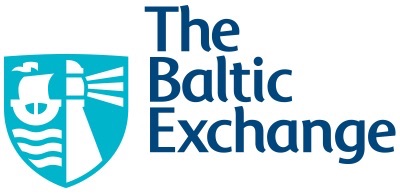Development of post-trade digital maritime market infrastructure; Move into LNG and container indices; Enhancement of regulatory role; Change of data distribution policies.
Posted on: 26 April 2017
Newly appointed Baltic Exchange Chief Executive Mark Jackson has set out the Exchange’s ambitious vision of the near-future in a wide-ranging speech in Singapore during the concurrent MPA Singapore Maritime and Singapore Iron Ore Weeks.
“The recent acquisition of the Baltic Exchange by the Singapore Exchange (SGX) has reinvigorated this key international maritime institution, allowing us to grow our leadership profile and play a bigger role than ever before in setting standards, building consensus and leading change in the shipping markets. These are bold plans and will ensure that the Baltic Exchange remains at the heart of the bulk shipping industry for the long-term. In 2017 we will be providing more freight market benchmarks and move into the LNG and container spaces; increase our regulatory role by enhancing the Baltic Code; become more active in supporting our members in post trading activities by creating a digital maritime market infrastructure and change our data distribution policies to enhance the role of our contributing panellists and tighten non-authorised access to our valuable datasets,” said Mark Jackson.
He added: “The Baltic Exchange will also be creating the Baltic Asia Advisory Committee whose key role will be to represent the voice of the shipping community in Asia.”
Work is already underway to develop the scope of the Baltic’s freight market information services. There are plans for a container market index and investigations with SGX to develop a freight LNG index to support its spot LNG pricing and Singapore’s emergence as a regional natural gas market hub.
On the regulatory side, the Baltic Code currently contains guidance for shipbrokers, owners and charterers, highlighting best and unacceptable practices and underpins our dispute resolution service. The Baltic Exchange intends to enhance the Code to provide greater clarity on the role of the shipbroker and raise global freight trading standards. The Baltic Exchange has ambitious plans for assisting in the development of a digital maritime market infrastructure to integrate the risk management of cargo and freight. This will involve working with the industry to develop tools that deliver real-time cargo and freight contract management, messaging workflows and data standards. As an independent and trusted body, the Baltic Exchange is able to provide the framework the bulk freight industry needs to develop new tools and standards.
Changes to the Baltic Exchange’s data policy were also announced. Compiled by using assessments of freight rates and other data supplied by shipbroker panellists, Baltic Exchange data is used to settle freight derivative contracts and is increasingly written into charterparty agreements. The terms of the Baltic’s Data Policy will be changed to ensure that all companies with physical freight contracts which reference Baltic Exchange data will be required to use a Baltic Exchange Panellist to calculate the settlement price or prices.
Full details of this change will be circulated to Baltic Exchange members and subscribers to the Baltic’s information services.




